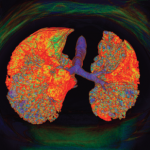An overview of highlights from the 2025 ECIM meeting, including research on treatment options for systemic sclerosis, the management of PMR & autoimmune testing.


An overview of highlights from the 2025 ECIM meeting, including research on treatment options for systemic sclerosis, the management of PMR & autoimmune testing.

Over 50% of patients with systemic sclerosis (SSc) develop interstitial lung disease (ILD), and rheumatologists have long recognized this major cause of morbidity and mortality.1 Sindhu R. Johnson, MD, PhD, professor of medicine at the University of Toronto, Canada, and director of the Toronto Scleroderma Program, notes that more recent studies have increased our awareness…

The session highlighted the importance of correctly identifying and treating patients with RA-ILD early in their disease course.

Clinicians should not rely on glucocorticoids as a first-line treatment of SARD-ILD in patients with systemic sclerosis, according to a strong recommendation in a new ILD treatment guideline from the ACR and CHEST. The guideline is one of two addressing the screening, monitoring and treatment of patients with interstitial lung disease (ILD) secondary to systemic autoimmune rheumatic diseases (SARDs).

MADRID—Rheumatoid arthritis (RA) is among the most common autoimmune diseases in the U.S., affecting approximately 1.3 million U.S. adults.1 Although tremendous treatment advances have been made in recent years, one extra-articular manifestation of RA that continues to pose a challenge with regard to detection and management is interstitial lung disease (ILD). At the 2019 European…
Reuters Staff |
NEW YORK (Reuters Health)—Transbronchial lung cryobiopsy (TBLC) and surgical lung biopsy (SLB) had a high level of agreement for diagnosing interstitial lung disease in the first comparative study. “These data suggest that TBLC, when done by an experienced proceduralist, is a valid first-line minimally invasive diagnostic tool for patients with interstitial lung disease deemed to…

Reuters Staff |
NEW YORK (Reuters Health)—Nintedanib dramatically slows lung deterioration in patients with progressive fibrosing interstitial lung diseases, according to a new randomized study.1 Nintedanib has already been shown to be effective against idiopathic pulmonary fibrosis (IPF). The new trial, funded by the manufacturer, Boehringer Ingelheim, and presented t the European Respiratory Society International Congress 2019 in…

Detecting interstitial lung disease in RA patients can be challenging. But evaluating risk factors and the use of imaging can help clinicians identify and manage this condition in patients…

Elizabeth R. Volkmann, MD, MS, Michael D. Roth, MD, Donald P. Tashkin, MD, Cathie Spino, ScD, & Dinesh Khanna, MD, MS |
Historically, the early approach for treating interstitial lung disease (ILD) due to systemic sclerosis (SSc) involved immunosuppressant therapy, primarily with cytotoxic agents.1 Glucocorticoids in combination with another immunosuppressant agent, such as oral azathioprine or cyclophosphamide, were often used to treat patients with severe, progressive SSc-ILD.2 However, direct evidence to support this therapeutic approach was lacking…

Interstitial lung disease (ILD) can be associated with rheumatoid arthritis (RA) with significant morbidity and mortality. An article in The Journal of Rheumatology focused on calculating the prevalence, incidence, mortality and costs to the healthcare system of RA-related ILD (RA-ILD).1 “RA is the most common of connective tissue diseases encountered by rheumatologists—affecting about 1% of…